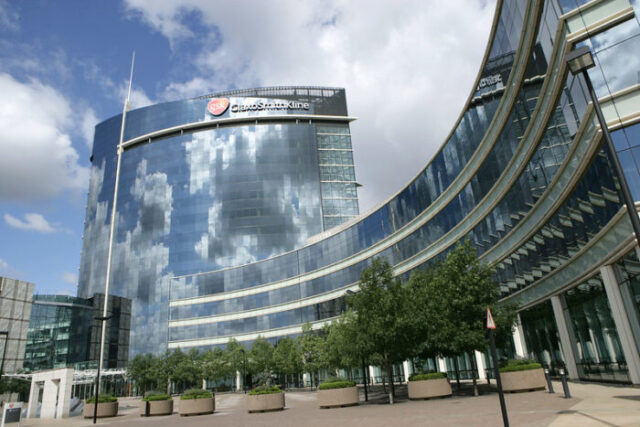
A drug that GlaxoSmithKline acquired as part of a $5 billion deal now has FDA approval, making it the second immunotherapy of this type approved for endometrial cancer and the first for such cancers carrying a particular genetic signature.
The Thursday regulatory decision for dostarlimab covers patients with recurrent or advanced endometrial cancer that has progressed following an initial line of treatment with chemotherapy. Those cancers must have mismatch repair deficiency (dMMR), in which mutations affect the proper repair of DNA inside a cell. This genetic feature is characteristic of several types of cancer and is also found in some endometrial cancers. Before treatment, the dMMR signature must be determined by an FDA-approved test.
GSK will market dostarlimab under the name “Jemperli.”
Endometrial cancer affects endometrium, the layer of cells lining the uterus. It’s the most common cancer affecting female reproductive organs and is projected to lead to about 66,570 diagnoses this year, American Cancer Society estimates. Of those diagnosed, nearly 13,000 will die.
When diagnosed early, endometrial cancer can be treated with surgery. Jemperli’s approval provides another option for women whose cancer has advanced or has returned following chemotherapy—cases that have fewer available treatments. According to the FDA, between 25% and 30% of patients with advanced endometrial cancer have tumors carrying the dMMR signature.
The GSK drug is a type of immunotherapy called a checkpoint inhibitor. The drug is an antibody that blocks PD-1, a so-called checkpoint protein found on cancer cells. Cancers use this protein to evade detection by the immune system. Blocking it enables immune cells to target and kill cancer cells. It’s the same type of drug as Merck’s pembrolizumab (Keytruda), a PD-1 inhibitor that’s approved for treating a slew of cancers. In 2020, Merck reported that Keytruda, its top seller, generated $14.4 billion in global revenue.
The FDA’s 2019 regulatory nod of Keytruda in endometrial cancer covers tumors not characterized by dMMR or mismatch instability high (MSI-H), a different mutation. The drug is approved for use in combination Eisai drug lenvatinib (Lenvima).
The FDA based its Jemperli decision on the results of a single-arm clinical trial enrolling 71 patients whose endometrial cancer was characterized by dMMR. Patients were given a 500 mg dose of the intravenously infused drug once every three weeks for four doses, followed by a 1,000 mg dose once every six weeks until the cancer progressed or the toxicity of the drug became unacceptable.
In the study, 42.3% of patients had either a complete response, meaning a disappearance of the tumor, or a partial response, meaning tumor shrinkage. Of those who responded to treatment, that response lasted six months or longer in 93% of patients. Side effects observed in the study included fatigue, nausea, diarrhea, anemia, and constipation. The FDA said the GSK drug can also cause immune-mediated side effects, including inflammation of healthy organs.
The GSK drug may find additional use treating other types of cancer. The company is continuing Phase 1 tests in patients with other types of advanced solid tumors.
Jemperli traces its origins to San Diego-based AnaptysBio, which licensed the antibody to cancer drug developer Tesaro in 2014. GSK struck a $5.1 billion deal in 2018 to acquire Tesaro. The regulatory progress and approval of the antibody has brought AnaptysBio $45 million in milestone payments so far. The biotech could earn $45 million more in regulatory milestones tied to future regulatory progress in the U.S. and Europe, and $165 million if the drug hits sales goals. AnaptysBio will also earn royalties from Jemperli sales.
The FDA decision for Jemperli is an accelerated approval, a faster decision based on a thinner body of evidence than is typically required in a drug review. While this pathway speeds the review of drugs for diseases that have few or no treatment options, companies that receive such approvals must conduct additional post-marketing studies to confirm a drug’s benefit.
Photo by GlaxoSmithKline








